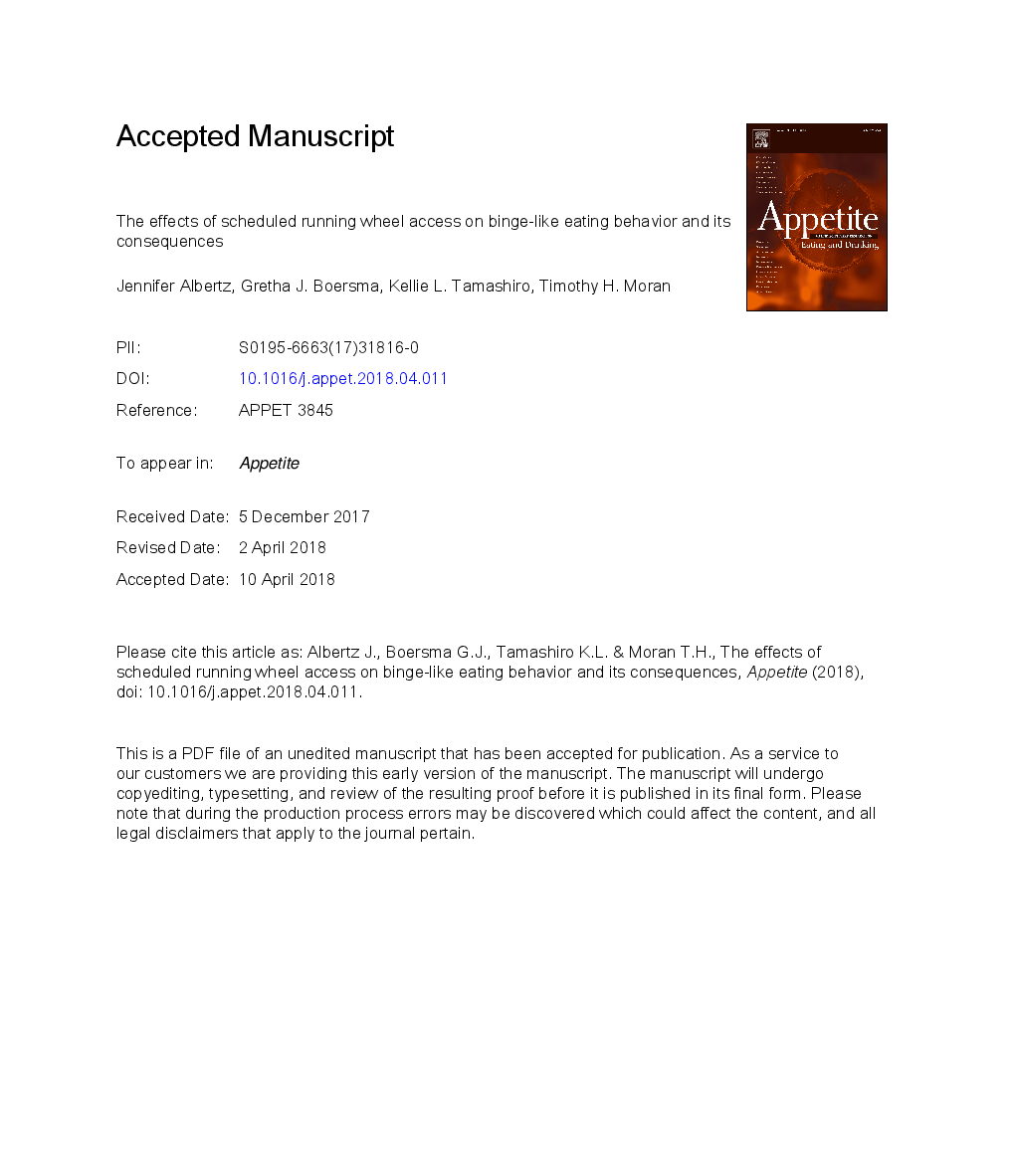ترجمه فارسی عنوان مقاله
تأثیر برنامه ریزی شده در دسترسی به چرخ در رفتار خوردن مانند غذا خوردن و عواقب آن
عنوان انگلیسی
The effects of scheduled running wheel access on binge-like eating behavior and its consequences
| کد مقاله | سال انتشار | تعداد صفحات مقاله انگلیسی |
|---|---|---|
| 131461 | 2018 | 37 صفحه PDF |
منبع

Publisher : Elsevier - Science Direct (الزویر - ساینس دایرکت)
Journal : Appetite, Volume 126, 1 July 2018, Pages 176-184

